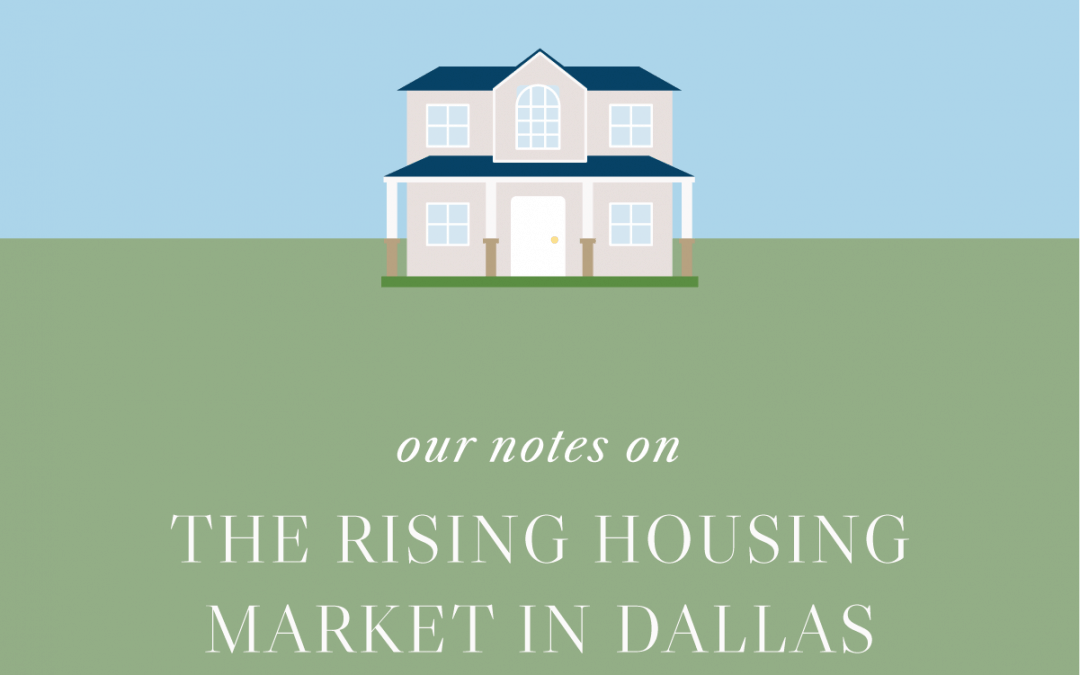Housing costs and general cost of living vary from state to state, but the average retiree spends about $16,700 per year on housing alone, as of 2019. That includes mortgage or rent payments, insurance, property taxes, and maintenance and repairs, but not utility bills and other household amenities.
But in areas like Dallas that are seeing an unprecedented rise in housing values (and therefore property values), this means more property tax and higher costs of living. What does this mean for you and your family if you’re nearing (or are already in) retirement?
What Happens When Housing Costs Rise?
For Dallas retirees living on fixed incomes, buying or selling their home can be more expensive than expected. The Dallas area in particular saw a surge in home sales at the end of 2019, with listings increasing in number and buyer demand on the rise. That may be partially due to Dallas-Fort Worth’s growing popularity; the area had the largest influx of new residents in the entire country last year. While high demand is good news for retirees wanting to sell their home, it can be a problem when they sell their home and need to move into a new place.
As housing costs rise, so do down payments for a brand new home. Plus, the other costs of selling a home — like homeowner’s insurance coverage, real estate agent commissions, and preparing the house to be sold — can easily eat into your budget. Furthermore, high demand can drive housing market competition, leading to a shortage of homes for sale. You may be able to sell your home quickly, but that also means it may take some time to find a new home of your own.
When housing values go up and you’re finding it difficult to sell your home or find an affordable new place to live, it can be stressful. However, you do have options when facing rising housing costs.
What Dallas Retirees (or soon-to-be retirees) Can Do
Rent a home instead of buying
Rather than search for a smaller house, townhouse, or apartment to buy, you can always consider renting as an alternative option. It’s true that rent can rise also, but some areas have a cap on rent increases. Dallas even experienced the lowest rent increase rate in years not too long ago. This option also means you won’t need to pay for upkeep on your home or property tax while you rent.
Take in tenants
You might also increase your income by taking in tenants who can pay rent directly to you. Think about taking in family members searching for accommodation: brothers and sisters who are also retired, nieces and nephews who work in the Dallas-Fort Worth area, or perhaps grandchildren starting college nearby. With this option, you can hold off on selling your family home, and you’ll enjoy the company, too.
Make the move
We’ve seen many clients debate whether or not to leave the immediate Dallas area to head for Hill Country and other hubs in Texas. While many want to stay in the area, you may decide that another city or suburb feels right for you. Finding retirement communities and floor plans that are more affordable and that you can “age well in” are also key driving factors for retirees making the move. Don’t be afraid to explore the rest of the state — it is a big one!
Defer property taxes
For those over the age of 65, the Texas Tax Code does allow you to defer property taxes to be paid from your estate after death. You must remain a homeowner and pay your mortgage if you still have one, and property taxes will accrue 5% interest. However, for those who are trying to level out their monthly and yearly expenses with their retirement income, this may be a valuable option.
What Else To Do? Talk to an Advisor in Dallas
If you’re nearing retirement or have recently entered retirement, make sure you’ve set yourself up for success. A Certified Financial Planner™ at Guiding Wealth can guide you through this new phase in your life, including making decisions about your housing situation in a booming market. Learn more about Guiding Wealth’s retirement planning services so you can get started today.

